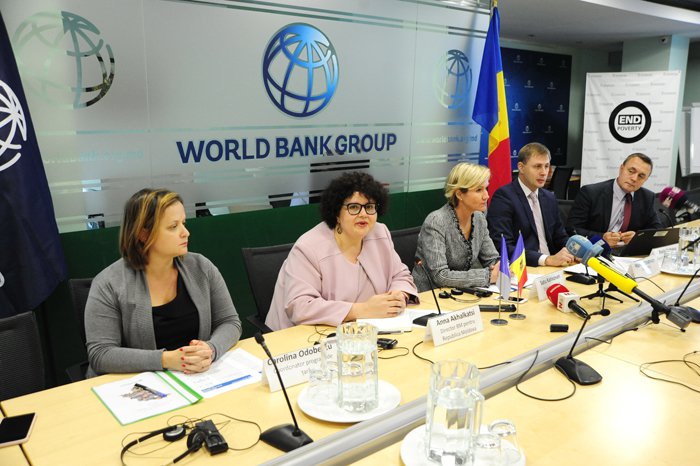World Bank estimates 3.5-per cent increase of Moldovan economy in 2017
16:52 | 02.10.2017 Category: Economic
Chisinau, 2 October /MOLDPRES/ - Moldova’s economy will increase by 3.5 per cent in 2017, due to a better harvest and a growth in the private consumption, against a background of higher remittances and salary increases in the private and public sectors. Statements to this effect were made at a today’s news conference held by the Chisinau-based World Bank’s Office.
“In the tax sector, we see a strong growth both of the revenues and public spending; the result is a 0.4-per cent fiscal deficit of the Gross Domestic Product (GDP). In terms of revenues, we have noticed practically a rise in all components. We are optimistic, we believe that there will be a positive influence of this sector on the economic growth,” a World Bank expert, Marcel Chistruga, said.
“WB also found out that, simultaneously with the decrease in the financial assistance on behalf of the international community, the fiscal deficit is expected to grow, but to remain under 2.5 per cent of the GDP. We anticipate that the strong growth of the public revenues will compensate the evolution of the public spending. If the additional international support is materialized, we expect a higher increase in public investments,” Chistruga noted.
The WB experts anticipates that the current account deficit is to gradually increase, but is to remain under the historical average, due to the revitalization of the external financial flows. The average inflation rate remains within the National Bank’s (BNM) target of five plus/minus 1.5 points. In this context, backed by the continuous increase in the real salaries, remittances and public transfers, the poverty rate, according to the rate of 5.5 dollars per day, will drop by 3.2 percentage points on the period 2016-2019.
Marcel Chistruga also said that, with the revival of foreign financial means and improving of the conditions of intermediation in the financial sector, along with the progress of upgrading the business environment, the private investments will be encouraged.
On a medium term, the growth will be speeded up to 3.8 per cent in 2018 and 3.6 per cent in 2019. The real increase of public transfers and improving of the remittances will help support the medium-term growth, according to World Bank’s forecasts.
The WB expert considers that, in fact, the consolidation of the medium-term growth will depend on the reorganization of the financial and energy sectors, as well as on the efficiency of the public money. “As the elections near, the avoidance of procrastinations in the implementation of reforms for better governance will allow Moldova taking advantage of the advantages of a solid growth,” Chistruga added.
As for the risks in the basic scenario of the forecast, the World Bank stressed that the weak rule of law state and diverse interests might cease the reform process in continuation. The parliamentary polls, schedule for 2018, can also affect the pace of enforcement of the reforms’ agenda. The weaker growth than the planned one of the main trade partners of Moldova (European Union and the countries of the Commonwealth of Independent States) might further diminish the economic growth.
(Reporter V. Bercu, editor L. Alcaza)


